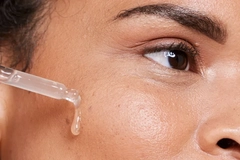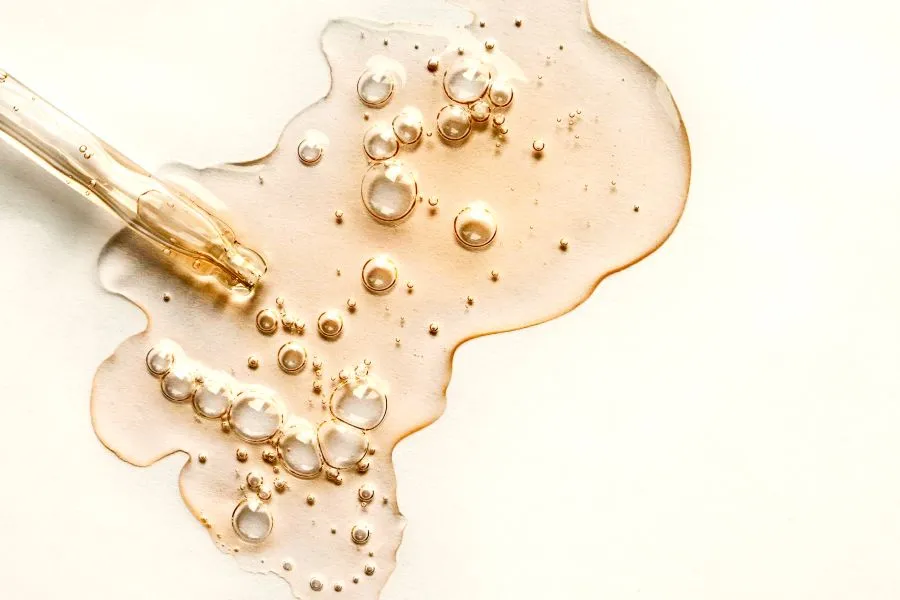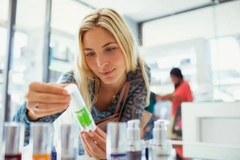EU retinol limits take effect: New concentration caps and mandatory labeling
Key takeaways
- Starting in November, cosmetic products in the EU must meet new concentration limits for retinol and its derivatives.
- Products that do not comply must be reformulated or removed from shelves by May 1, 2027.
- New labeling requirements aim to raise consumer awareness about vitamin A intake and potential health risks.

From Saturday (Nov 1), cosmetics hitting the EU market must comply with new percentage limits for retinol. In April, the European Commission (EC) published an amendment to the EU Cosmetics Regulation, announcing that brands can only sell skin care products containing the popular anti-aging ingredient at 0.3% concentrations and 0.05% for body lotions.
Companies will no longer be allowed to introduce products containing retinol, retinyl acetate, or retinyl palmitate that do not comply with the concentration conditions. Products already on the market will be subject to a subsequent deadline of May 1, 2027, to meet compliance. Items that do not adhere at that time will be removed from shelves.

On November 1, new retinol equivalent (RE) cosmetics must also include the following statement: “Contains vitamin A. Consider your daily intake before use.” This mandatory labeling statement increases consumer awareness about the health damages associated with overconsuming vitamin A.
Vitamin A overdosing concerns
Retinol is popular for its anti-aging capabilities. It increases cell turnover and has been scientifically proven to reduce the visible signs of aging, such as wrinkles, dull skin tone, and age spots.
However, the Scientific Committee on Consumer Safety (SCCS) has raised concerns over people unknowingly overdosing on vitamin A from ingesting it through food and dietary supplements. Therefore, some may exceed the recommended upper intake level after applying retinol products to the skin.
 The EU tightens rules on vitamin A in cosmetics.There has been rising concern in the personal care industry surrounding young people’s use of skin care products — particularly those containing harsh actives, such as retinol. A survey of UK tweens found that over 25% use potent skin care ingredients.
The EU tightens rules on vitamin A in cosmetics.There has been rising concern in the personal care industry surrounding young people’s use of skin care products — particularly those containing harsh actives, such as retinol. A survey of UK tweens found that over 25% use potent skin care ingredients.
“Strong active ingredients like retinol…can disrupt the delicate skin barrier in younger users, leading to short-term dryness and irritation, but also potentially longer-term sensitivity. Nearly half of UK tweens surveyed are already experiencing reactions, and 55% not checking ingredient labels,” a spokesperson from the British Skin Foundation previously told Personal Care Insights.
The UK National Health Service (NHS) has warned that people should not take more than 1.5 mg of vitamin A daily. It was not specified whether the limit is lower for children.
Mitigating health risks
The NHS cites some experts who warn that too much vitamin A can cause weak bones, liver damage, and birth defects in pregnancy. Studies have suggested that excessive vitamin A over several years can cause osteoporosis, a condition that weakens bones. This is particularly important for older people, especially women, who are already at increased risk.
The SCCS has concluded that retinol in cosmetic products at the new designated EU concentrations is safe, but it can raise problems for certain consumers who are particularly sensitive to the ingredient.
The personal care industry has been responding to market demand for less-intensive retinol products. Image Skincare recently launched a collection of retinol suitable for all skin types, including sensitive skin. The company stressed that finding the right balance for individual users to avoid irritation remains challenging for anti-aging skin care solutions.
Under the new EU retinol limits, prescription-strength vitamin A products, such as adapalene and tretinoin, will still be available through doctors and dermatologists.




















